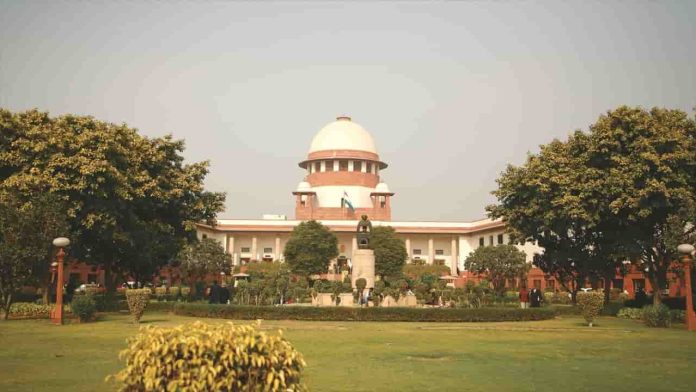The Supreme Court assured on Wednesday that it would hear the case seeking answer to whether marital rape should be treated as a criminal offence or remain an exception to the criminal offence of rape.
Senior Advocate Indira Jaising mentioned the matter before the Bench of Chief Justice of India D.Y. Chandrachud, Justice P.S. Narasimha and Justice Manoj Misra.
The lawyer contended that her petition in the case addressed a child sexual abuse case.
Appearing for another petitioner, Advocate Karuna Nundy contended that the point in marital rape case was a very short one and that Jaising would address the court on the law as it presently stood.
The Apex Court, while noting that it was yet to resolve the challenge to exception 2 to Section 375 (rape) of the Indian Penal Code (IPC), agreed to take up the case.
As per exception 2, charges of rape cannot be attracted against a man who has had non-consensual sex (commonly referred to as marital rape) with his wife.
On May 11, the High Court of Delhi had delivered a split verdict on the ongoing martial rape case which talks of the validity of Exception 2 in Section 375 of the Indian Penal Code (IPC).
Exception 2 in Section 375 says that rape charges cannot be put against a man who has non-consensual sex with his wife. The validity of the same had been challenged before the High Court.
The Division Bench of Justice Rajiv Shakdher and Justice C. Hari Shankar differed in their verdicts.
Justice Shakdher struck down the provision stating that it is unconstitutional.
“The impugned provisions in so far as they concern a husband having intercourse with his wife without consent are violative of Article 14 and are, therefore, struck down,” Justice Shakdher held.
Justice Shankar differed. “I do not agree. There is no support to show that impugned exception violates Articles 14, 19 or 21. There is an intelligible differentia. I am of the view that the challenge cannot sustain,” Justice Shankar held.
Owing to a split verdict, the marital rape case will be referred to a three-judge bench.
The HC said the issue involves a substantial question of law. “We grant leave to appeal,” the bench said.
Solicitor General Tushar Mehta, who appeared for the Central government on the last hearing, had told the Delhi High Court that a stand on issue like this should be taken only after due consultation with State and other stakeholders.
The SG said that this case can impact the social and marital life of many people and it should be dealt properly. He stressed that since this case could have an impact on social and family life with wide consequences, the Centre would only put forth its stand after the consultative process.


